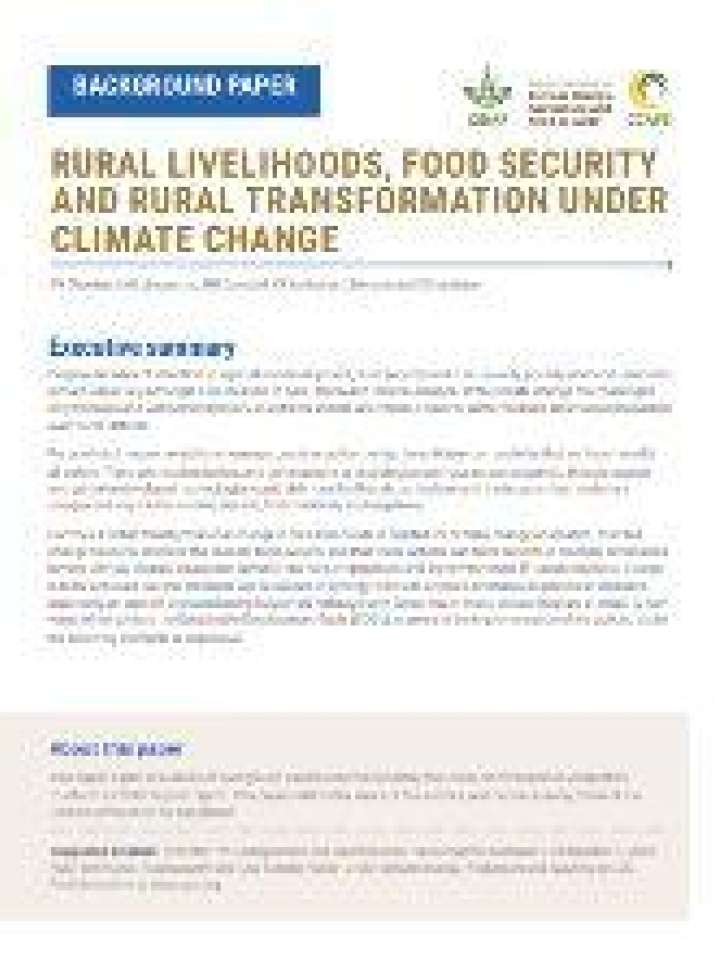Rural livelihoods, food security and rural transformation under climate change
Despite decades of attention, poverty and food insecurity persist, especially amongst rural dwellers in Asia, Africa and Central America. With climate change the challenges only increase and will further intensify as extreme events and variable weather patterns make small-scale production even more difficult. This report's thesis is that transformational change in rural livelihoods is needed for climate change adaptation, that this change needs to embrace the broader food system, and that these actions can have benefits in multiple dimensions beyond climate change adaptation: poverty, nutrition, employment and the environment.
If transformational change is to be achieved, several elements will be needed in synergy, with less or more emphasis on particular elements, depending on context and considering household heterogeneity. These elements range from reconfiguring policy and institutional environments to investing more heavily in transformational change. Taken together, implementing these elements for action simultaneously would constitute a new approach to innovation and enabling it: co-creating new knowledge, “renovating” existing but as-yet under-utilized scientific and indigenous knowledge, and sharing knowledge between all stakeholders and levels in the food system, producers and consumers alike.
Fostering transformation in rural livelihoods, agriculture and food systems will mean very different things for different sub-sectors of the rural population, where the authors recognize at least four livelihood types. Moreover, the report also discusses five main pathways to transformational change.
Explore further
